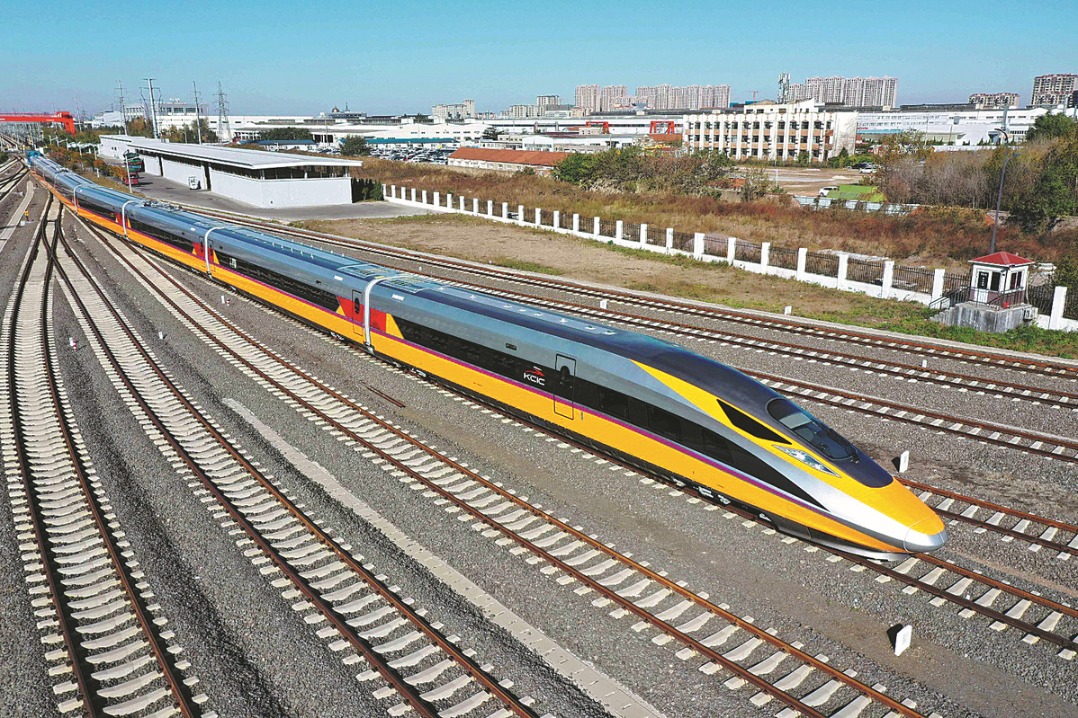Vietnam deepening friendship, cooperation with China


Vietnam and China are two neighboring countries with many similarities in history and culture. In 2025, the people of Vietnam and China are joyfully celebrating the 75th anniversary of the establishment of diplomatic relations.
In recent years, bilateral trade between Vietnam and China has taken significant strides. Vietnam maintains its position as China's largest trading partner in ASEAN and, by 2024, it had become China's fourth-largest trading partner. In contrast, China is Vietnam's largest trading partner, largest import market and second-largest export market.
Vietnam primarily exports agricultural products, seafood, textiles, rubber, crude oil, and electronic components to China, while importing machinery, industrial equipment, raw materials, consumer goods, and electronic components from China. The trade volume between the two countries has been rapidly growing, with a positive shift in the structure of traded goods. This shift toward more diverse exports and imports allows both nations to effectively leverage their comparative advantages. Vietnam's exports to China are transitioning from raw and semi-processed goods toward processed industrial products, indicating a move toward higher value-added exports.
Meanwhile, the quality of Vietnam's exported goods is increasingly enhanced through high rates of technology investment and intellectual content based on technology investment, taking advantage of favorable market and pricing opportunities to increase export value. Regarding investments, in recent years, the investment capital of Chinese enterprises in Vietnam has rapidly increased. In 2024, China invested $4.7 billion in Vietnam, ranking third among the largest investors in Vietnam. As of December 2024, China ranked the sixth out of 149 countries and regions investing in Vietnam with 5,111 projects, with a total registered capital of over $30.8 billion.
China's increased investment brings many practical benefits to Vietnam. For example, it supplements capital for Vietnam's development, contributes to increasing its economic restructuring and production capacity toward industrialization and modernization, creates jobs, increases income, improves the capacity of Vietnamese workers, and promotes the country's economy to integrate more deeply into the global economy.
Recently, China's investment in Vietnam has shown new trends with increasing diversification across various fields. While traditionally focused on processing and manufacturing, Chinese investments are now shifting toward high-tech industries such as industrial components, electronics, and automobiles. The quality of these investments has notably improved, with a higher emphasis on high-tech content. This shift presents Vietnam with an opportunity to access modern technology and integrate more deeply into the global production chain. Chinese investments are widespread across Vietnam, with a focus on its northern provinces due to their proximity to China and well-developed transport infrastructure and seaports, a trend that is expected to continue.
With China as the world's second-largest economy and a population exceeding 1.4 billion, alongside Vietnam's abundant labor force, natural resources, and rapid economic growth and a population of over 100 million people, the conditions are ripe for enhanced economic cooperation. The two nations, with strong complementarity and significant potential for collaboration, are bolstering their comprehensive strategic cooperative partnership toward a shared future. Strengthened political trust is paving the way for rapid economic development, positioning economic cooperation as a crucial pillar in the bilateral relationship, benefiting both nations' populations.
Vietnam and China are both members of the Regional Comprehensive Economic Partnership (RCEP) agreement, which officially took effect on Jan 1, 2022. After more than two years, the RCEP is playing a major role in promoting trade relations between the two countries. Up to now, this agreement is being upgraded, creating favorable conditions to promote the globalization process and trade facilitation.
Additionally, version 3.0 of the ASEAN-China Free Trade Area is entering the final stage of negotiations, and the negotiation process is expected to conclude this year. This agreement will be the basis for trade cooperation between China and ASEAN countries in general. For Vietnam, China's most important trade partner in ASEAN, it heralds greater cooperation in the fields of the digital economy and green economy.
Vietnam stands as an appealing investment hub for China, drawing significant interest from Chinese enterprises for collaboration. Notably advanced in key scientific and technological domains, China boasts international-scale corporations in technology, electronics, processing, renewable energy, and electric vehicles, keen on investing in Vietnam. Looking ahead, there remains ample opportunity for Chinese enterprises to expand their investments in Vietnam's high-tech sector, leveraging China's strengths for mutual benefit.
On the occasion of the 75th anniversary of the establishment of diplomatic relations between the two countries and the Vietnam-China Humanitarian Exchange Year, the two sides can take the opportunity to strengthen cooperation in many fields, such as tourism, science and technology, education, communication, etc. Through these activities, the two countries can review previous cooperation activities, making their friendship increasingly strong.
In particular, as the two countries aim to build a community with a shared future, the two countries need to strengthen friendly exchanges between the youth of the two countries through specific activities to build and maintain long-term friendships, as the future belongs to the younger generation.
The authors are associated researchers at the Vietnam Academy of Social Sciences. The views don't necessarily reflect those of China Daily.
If you have a specific expertise, or would like to share your thought about our stories, then send us your writings at opinion@chinadaily.com.cn, and comment@chinadaily.com.cn.
































